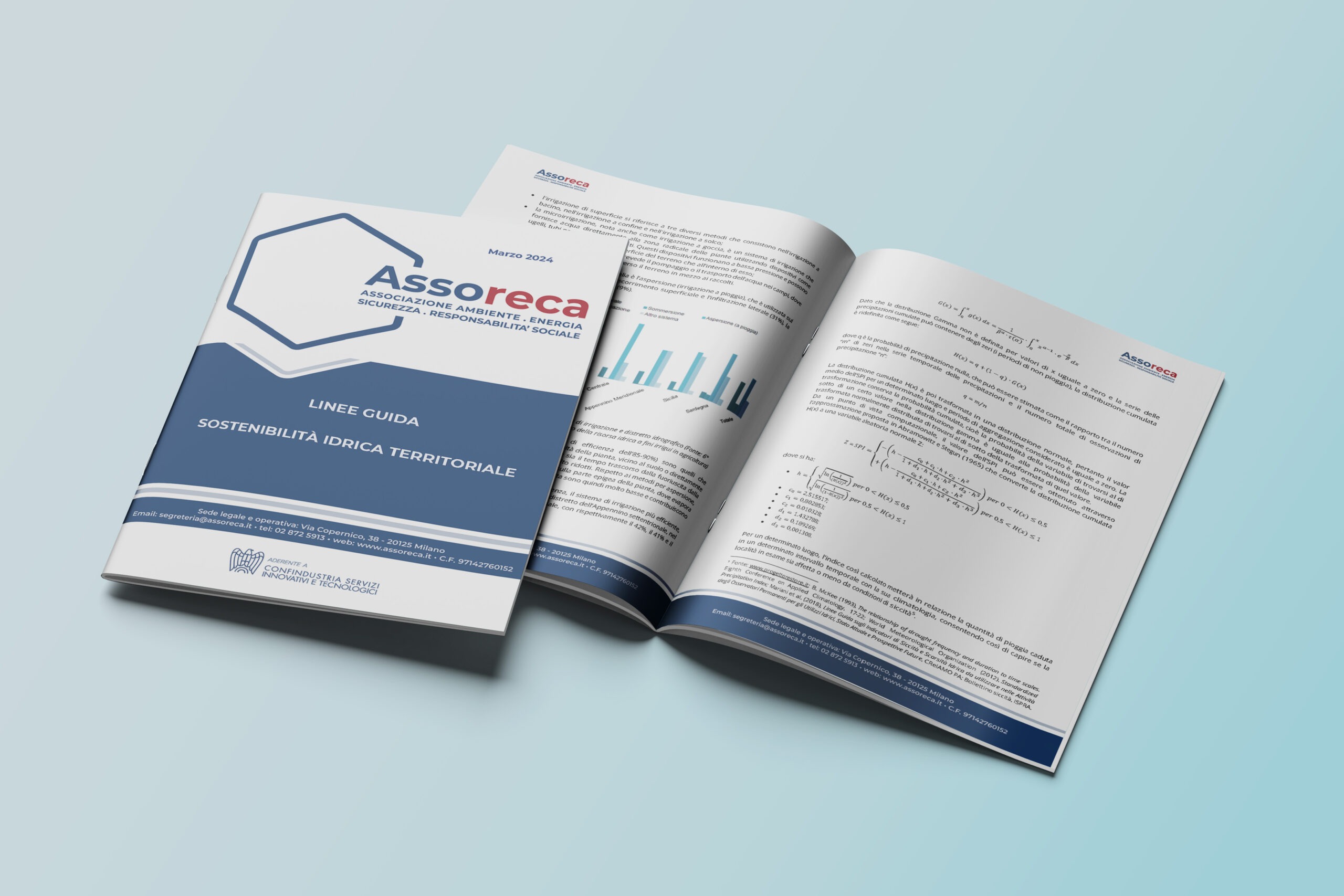Water sustainability: new guidelines developed by Assoreca and coordinated by Proger are now available
A new model for efficient water resource management to address the challenges of the ongoing climate crisis.

The document “Guidelines for Territorial Water Sustainability” was published on the occasion of World Water Day. Proger conceived and coordinated the project as part of the working group of Assoreca, the association of the largest environmental engineering companies in Italy. The aim is to provide authorities, companies and professionals with an effective and collaborative model for distributing water resources among the different sectors of use: civil and drinking, industrial, agricultural and livestock, and hydroelectric.
Marco Sandrucci, head of Proger’s Environment and Geology department, explains the motivations behind Assoreca’s “Water Sustainability” project, which he coordinates: “An important change is becoming increasingly clear at the level of rainfall distribution throughout the year, with a dramatic alternation of phenomena of opposite sign, going from disruptions due to excess water to periods of drought. The purpose of the document, and of the “territorial water sustainability” pilot project, is also to give operational guidelines to cope not only with the increasingly frequent succession of water crises, no longer relegated to the southern regions of Italy and the World alone, but also with the concurrent incorrect and un-optimal management of water, and for this reason we felt the urgency to intervene to bring to the attention of the competent authorities a methodological formulation that is efficient and sustainable“.
The guidelines analyze the issue of water from environmental, technical, legislative, political, and social perspectives. They cover all aspects, from feasibility verification to water supply, use, recovery, and reuse. The guidelines propose a virtuous circular model that can be replicated in different socioeconomic and territorial contexts.
An operational and managerial response that must fit within an infrastructural and legislative framework that requires significant renewal, as also highlighted in the “Water Economy in Italy” report published by Proger in early 2023. A second document, which will focus on the best technologies currently available in the sector, will be published in a few months.
Proger has always been attentive to optimizing and promoting circularity of water resources in construction and production sites. In recent years, the company has expanded its focus to include systemic and territorial aspects, such as the critical relationship between water and agriculture. Despite being a primary sector for all human communities, agriculture is often the most damaged. Proger’s approach aims to optimize water use and storage, particularly recycled water from sewage treatment plants, during periods of abundance. This stored water is then made available to support agricultural crops during drought and high evapotranspiration periods.
Concludes Sandrucci: “The working group is successfully developing the pilot project of a territorial compartment with high water resilience and sustainability in Piedmont, in an area that has all types of hydro-demands and, above all, criticalities that until recently were unimaginable. Since competition for water use is not only an Italian problem, but an increasingly global one, we believe that this new model can be an adaptable solution in all contexts and we want to demonstrate its concrete applicability“.